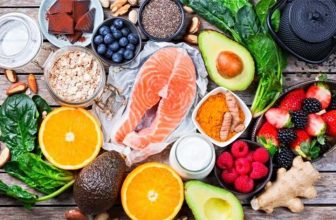
There are strategies that can enhance the body’s ability to burn fat. They should be carefully experimented with. Read on and we’ll give you 8 top fat burning keys, nutritional strategies that have all demonstrated an influence on oxidation (fat burning).
There are two terms that are used to describe fat burning and these are 24-hour fat oxidation (simply the total amount of fat burned during the day) and maximal fat oxidation (the maximal amount of fat that is burned for energy production during exercise). Fat oxidation has been linked to both exercise performance and health, for example, a reduced ability to burn fat (low 24-hour fat oxidation) has been related to greater risk of weight gain or regain of body fat after diet induced weight loss. OK, so let’s take a more detailed look at these 8 keys…
1. Fasted exercise:
This is one strategy that can be deployed as part of a training programme 1-2 times per week. It is well known that carbohydrates promote their own oxidation, in other words they will suppress the amount of fat you burn, by promoting more carbohydrate burning.
For instance, in 2003 a study found that ingesting carbohydrates in the hours before exercise raised insulin production and suppressed fat oxidation by 35%. It is suggested that the attenuating effect of dietary carbohydrate on fat oxidation can last up to 6-8 hours. This means that training in a fasted state before breakfast is likely the most practical way to go and is a popular strategy used by endurance athletes as a way of enhancing the fat burning capacity of the muscle.
2. Calcium:
This may be a surprise! However, evidence is now showing a link between calcium consumption and body fat loss, specifically calcium from dairy products, and this has been shown to be 50-100% more effective for body fat loss than just calcium alone. In one study, the amount of fat burned during a 24 hour period was 28% greater in the high-calcium group compared to the group on a low calcium diet.
The mechanism that may be at hand may be a decrease in fat storage when dietary fat is eaten along with calcium and/or influencing the process in which the fat is metabolized. Either way, if there is any example for not restricting particular foods groups, then this is one! Many diets will advocate restriction of dairy foods because of their high fat content but actually this is potentially doing more harm than good. If your diet is advising you not to eat cheese, milk and yogurts; it might be time to reconsider.
3. Fish oils:
Studies have shown an additive relationship between exercise and fish oil, with the combination of both showing the most preferential changes in body composition. Therefore, exercise may potentiate the effects of fish oil supplementation.
Furthermore, a number of studies have shown the effects of fish oil on energy metabolism, with one clearly showing an enhancement in fat oxidation during exercise.
4. L-Carnitine:
Not a new claim and first became popular when it was suggested the Italian football team supplemented with Carnitine on their way to World Cup glory in the 1980’s. Carnitine is stored in the muscle and plays an important role in transporting fats into the muscle during the process of fat oxidation. The idea is that higher carnitine levels in the muscle via supplementation enhances fat oxidation during exercise.
However, many studies failed to find that this was the case and actually carnitine taken orally is metabolized way before it even reaches the muscle for storage and subsequently provides no effect on fat oxidation during exercise. More recent studies have found that carnitine supplementation coupled with an insulin spike may increase carnitine levels in the muscle. Therefore, carnitine supplementation alongside a carbohydrate drink or food may provide a benefit or, if weight management is a target, then a protein drink would also help stimulate insulin just like carbohydrate.
5. Caffeine:
Caffeine may increase fat oxidation via two mechanisms. First, by stimulating fatty acid mobilization and subsequently making more fatty acids available to be burnt. Second, by increasing the overall energy expenditure during a training session by reducing the perception of fatigue.
In practice, it is very common for endurance athletes to drink a large cup of coffee or 1-2 smaller cups in the hour before exercise to benefit from its performance enhancing effects.
6. Green tea:
Green tea has many proven health benefits and there is evidence that it does protect against some diseases. Green tea intake has been shown to increase fat oxidation during exercise by 25% and more specifically, in 2008, a study found that green tea intake the night before and an hour before exercise, enhanced fat oxidation by 20%.
It is proposed that the catechin polyphenol content of green tea may be a reason for the enhancement of fat oxidation due to its link with catecholamines (adrenaline and noradrenaline) and making more fatty acids available to be burnt. Therefore, swapping milk-based tea for green tea may be an easy way of enhancing fat oxidation during training.
7. Sleep low:
This one is similar to fasted training but goes a step further and should be used no more than 1-2 times per week. The idea is that you perform a high intensity training session in the evening and then restrict carbohydrate intake afterwards by consuming only protein. Then, the next morning you perform steady state exercise such as running or cycling before breakfast with muscles that are almost depleted of carbohydrate so that you burn much more fat during the session.
It’s a new idea and research is scarce but when done with a group of triathletes, the group who used this strategy as part of their training programme, benefitted from greater body fat loss and enhanced training adaptations.
8. Low carb diet:
This one was purposely kept until the end to help put everything into perspective. It is important to remember that fat burning doesn’t equal weight loss!
For example, in order to lose weight or specifically, body fat, you need to be in an energy deficit (burning more calories than you’re eating). A great example is a low carb diet because the big attraction is its ability to promote fat burning due to being very low in carbohydrate. The problem is, you can maximise fat burning all day long but if you’re not in a calorie deficit, you will not lose weight.
The reason low carb diets are so effective at producing weight loss is most likely due to a high protein intake to compensate for the lower carb intake and the overall drop in calories due to the restrictive nature of the diet. However, it could be possible that the promotion of fat oxidation could help weight loss further and this is something we’ll be exploring in our laboratory later this year, when we compare the same low carb diet but with different calorie totals.









